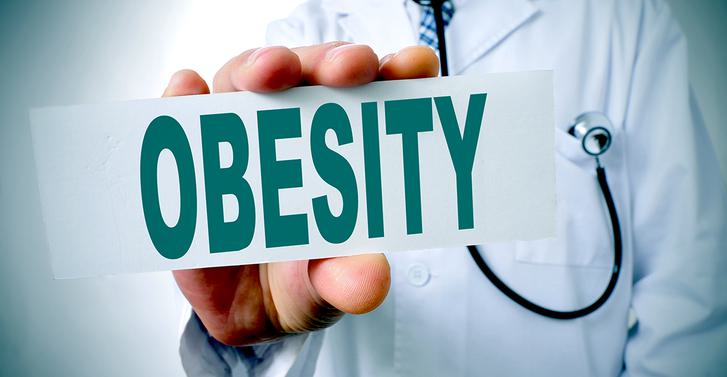
We Need To Change How We Think About Obesity!
posted on: January 03, 2019. posted in: Weight loss
If you've seen today's news there are calls for it to be reclassified as a disease, and as you'd expect this has triggered a lot of passionate debate.
I've been studying obesity and working one-to-one with obese people for many years, so here's my take on it.
The problem is language.
The English language has a really bad habit of putting lots of different things, people and experiences under one, single word - which naturally leads us to believe they are all the same.
As a simple example, take the word "women".
When you use the word "women" you are putting a huge group, half the population of the world in fact, into one big pot and assuming they're all the same.
But think about the diversity amongst women. Think about how many different types of women there are, racially, physically, hormonally, anatomically, emotionally, intellectually, financially, chronologically...
The list goes on and on.
You can't talk about "women" as though they are all the same because within the population of women are a million different types of women.
But sadly there are still people in this world that describe "women" as though they are all universally the same.
Back when I first started personal training I used to prescribe workouts with different weights for "men" (much heavier) and "women" (much lighter).
My assumption, and what I had been taught to believe on my PT course, was that all women were weaker and all men were stronger, and therefore it makes sense to universally prescribe an 8kg kettlebell as a starting point for "women" and a 12kg kettlebell as a staring point for "men".
But time and experience taught me that I had male clients who couldn't lift 8kg, and I had female clients who could easily lift 16kg.
I could no longer make assumptions about someone's strength purely by the word "woman" or "man", I had to assess each individual based on their own unique level of strength.
__________
So how does this apply to obesity?
"Obesity" as a word is very similar to "women" or "men".
It is describing a huge population of people, but within that population there is a huge amount of diversity.
Not all obese people are the same.
There are lots of different types of obesity, where some types are most definitely a disease and other types are most definitely not, and this is where the confusion comes in.
The analogy I use is a restaurant.
Imagine a restaurant that has filled up because it has a really good chef, really good food and a really good eating experience, making it very popular.
Now imagine a restaurant that has filled up because there's a storm outside, and people walking passed have filled it up trying to find place to keep dry.
And now imagine a restaurant that has filled up because the revolving doors are allowing people into the restaurant, but they've jammed and nobody can get out.
All three examples are restaurants that are FULL.
But if we described all three restaurants as in a state of "flow-besity" (people flowing in and not flowing back out) it puts all three examples in the same pot, without describing the diversity and differences between them.
The first restaurant is experiencing flow-besity for very different reasons to the flow-besity being experienced by the second and third restaurants.
In this way, the flow-besity in the first example is healthy and normal and natural, whereas the flow-besity in the second and third examples could be classified as more problematic, and potentially more like a disease.
So when we ask...
"Why is this restaurant full? Why is this restaurant in a state of flow-besity?"
We get three very different answers.
1. Popularity
2. People trying to keep dry
3. The revolving doors not working
It's only the third example that we might classify as a "disease" because something is broken and not functioning as it should.
Applying this to obesity, when we ask...
"Why is this body full? Why is this body in a state of obesity?"
Again we can give three very different answers.
1. Genetics
2. Emotional eating
3. Metabolic adaptation
And it's only the third example that we might classify as a "disease" because something is broken and not functioning as it should.
So much like the revolving doors that only let people flow into the restaurant, without letting people flow back out of the restaurant, causing it to fill up...
Metabolic adaptation is when our hormones only allow fat to flow into our fat cells, without letting that fat flow back out of our fat cells, causing them to fill up.
This kind of obesity is very different to the obesity experienced by someone who is genetically bigger and heavier (think of a professional rugby player), or someone who is gaining weight through emotional eating (think of someone who binges to cope with stress).
The take home message is that "obesity" is complex.
It's not just one universal type of person, and it's most certainly not just a disease of greedy, lazy, weak willed people.
If we're serious about tackling obesity, we firstly have to eliminate all those who are naturally and healthily heavier from the equation (number 1 above), and then we need a very different strategy for how we treat emotional eaters (number 2 above) compared to those experiencing metabolic adaptation (number 3 above).
Anyone reading this who has been classified as "obese", you need to ask yourself...
"Am I obese because I'm genetically bigger and heavier? Am I obese because I use food to soothe and comfort myself? Or am I obese because I've damaged my body through decades of dieting?"
Obesity driven by your genetics (number 1) and by metabolic adaptation (number 3) is very challenging to reverse, and is where the claims "it is almost impossible to reverse obesity" have come from.
But obesity driven by your emotions (number 2) is very reversible, and is why we see people dramatically lose weight when there is an emotional shift in their lives.
Liam
p.s. For anyone wanting to learn more about obesity, its causes and ways to manage and reduce emotionally based obesity, join us on the Jump Start™ mission, launching next Monday!








